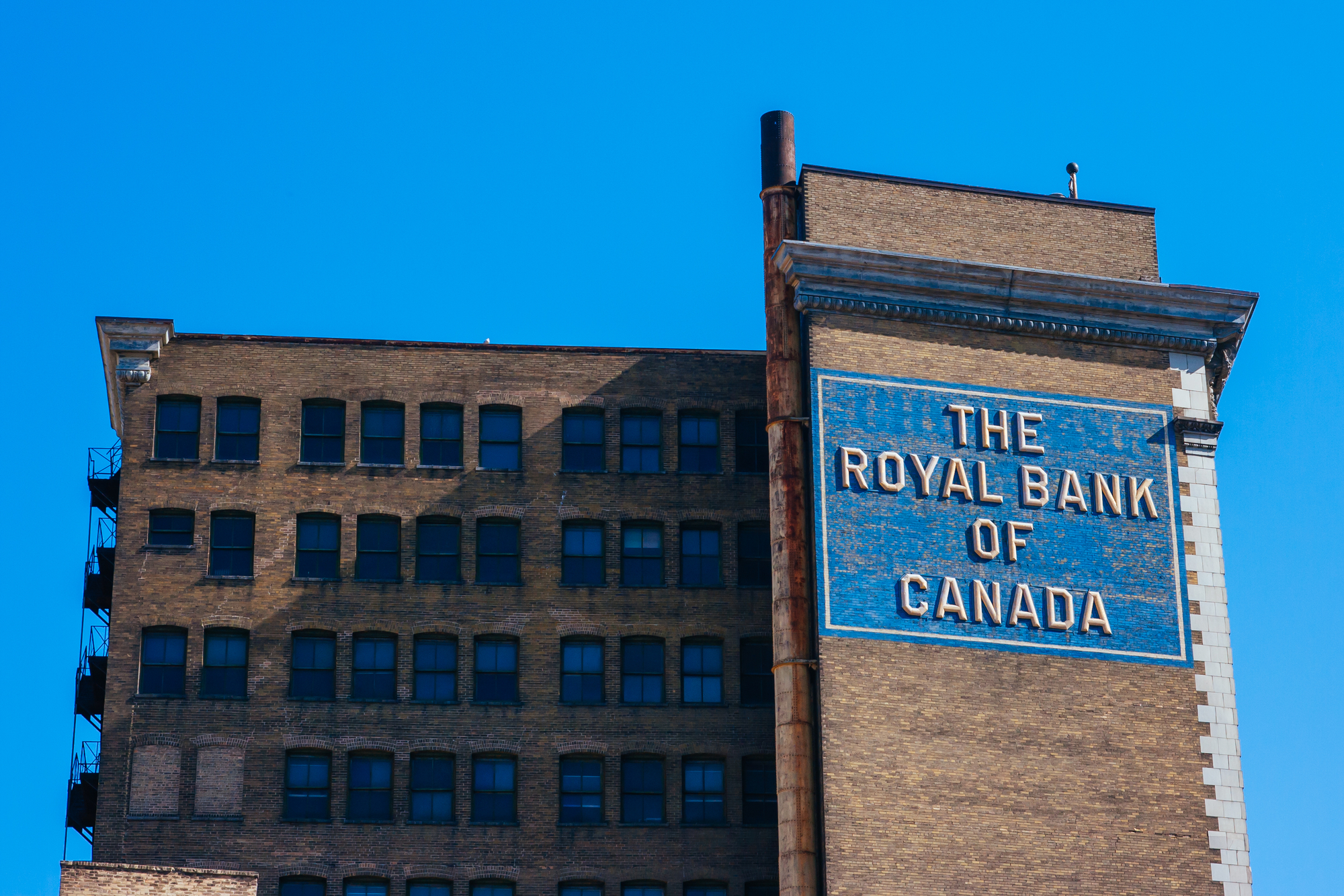Last Updated on October 24, 2023 by Heather McDowell
Rising interest rates and record-breaking inflation coupled with ongoing supply chain issues and labour shortages seem to indicate the possibility of a recession.
As the economy expands and contracts, some businesses are hit harder than others. These are referred to as cyclical businesses because their value relies on consumer spending.
If the news of a possible economic downturn is tempting you to consider a full-on liquidation of assets, we’re going to suggest that you stop dialling and read on as Canada Real Estate Wealth with Top Investor Sandy MacKay collaborates to share with you the best ways to weather the economic storm in a sea of discontent.

For those readers that already own real estate or can invest in premium markets when pricing is at peak, that will serve you incredibly well during a recession. The low pricing can flash dollar signs in your field of vision but ensure that you are not overleveraged.
While real estate markets might take a slight hit during a time of recession, relative to other sections, the recovery of value is swift once the recession passes.
If investors were granted a single wish, their most frequent request would surely be for reliable consistent cash flow despite the real estate market’s ebb and flow.
Step 1: Just Breathe
Okay, so step one is, perhaps, easier said than done; just breathe.
Statistically speaking, you will experience at least one recession in your lifetime. In the event of a downturn, crossing your fingers and hoping for the best or panic-induced financial decision-making under duress is also a poor strategy.
An impending recession is an excellent time to evaluate your investments and discover how to build a recession-proof portfolio. In this piece, we’re putting foot to pavement, so to speak, and giving you confidence and the compass needed to navigate those troubled waters.
Know Your Numbers
Now is a good time to brush up on the key performance indicators (KPIs) of your real estate investors. While you may have a Portfolio Manager to oversee all of the intricacies of your empire, now is the time for you to understand what numbers indicate future challenges and triumphs. While you may have « a guy [or gal] who takes care of all of that”, it’s the same principle as when paying with cash at the store. Remember how your Mom [or Dad] would instruct you to calculate the change that’s returned to you from the store clerk in your head and then eye ball it in your hand before chucking it into your pocket? Well, it’s the same concept. Savvy investors have the insight to provide the final checks and balances on their own investments.
Here are a few measurables or KPIs that allow investors to take the pulse of their assets:
Net Operating Income (NOI)
While this may seem like Investor-101 territory, an important caveat here is to measure the NOI of each asset, rather than rolled up to the portfolio level. This will allow you to stop any bleeding of funds before a potential hemorrhage.
Cap Rate
This is the real estate equivalent of the stock market’s return on investment. Cap rate divides your net operating income (NOI) by the asset value. A word to the wise here: It is initially the price you purchased the asset for but over time, a real estate property will appreciate (specifically, the land typically appreciates).
A high cap rate indicates higher returns and ultimately, higher risk. This is why you generally see higher cap rates in riskier markets, versus lower cap rates in stable and larger markets. If this KPI is seeing dramatic swings, it may be a precursor to some instability, be it an asset falling into disrepair or being improperly maintained, or perhaps a market shift or a change within the geographical area in which the asset is located.
Internal Rate Of Return (IRR)
The calculation goes beyond net operating income and purchase price to estimate long-term yield. It’s the rate of growth that a property has the potential to generate. It’s a complicated formula, so most investors use the IRR function in Excel to calculate the ratio. Depending on the specific real estate asset, a stable IRR ranges from 10-20 percent but is variable. It’s another valuable way to gauge whether a property is over or underperforming.
Cash Flow
Negative cash flow could also indicate that you’re spending too much on the property, and you should examine its associated expenses.
Cash-on-Cash Return
This highlights the total return on the money in your real estate investment. Simply put, it’s how much money you’re earning off your cash invested. It’s an important metric because, unlike other real estate investing metrics, it includes debt service and your mortgage. Recalibration of cash-on-cash returns can help an investor determine the best way to finance a new investment. It’s used when choosing between potential investments and is prudently applied when forecasting returns during years of anticipated capital expenditures.
Loan-to-Value Ratio (LTV)
The loan-to-value ratio measures the amount of leverage on an individual asset. An LTV matters to investors who heavily use financing on their transactions. It measures the amount required to finance against the property’s current fair market value (FMV). LTV is also the best method to track a property’s held equity beyond financing. A loan-to-value ratio is a fantastic tool for the value of the assets in a portfolio accounting for debt. The key here is to look at the properties or assets independently from a collective roll-up at the portfolio level.
Operating Expense Ratio (OER)
A measure of profitability, the OER highlights how well expenses are being controlled relative to income. A lower OER reflects minimized expenses in the context of revenue. If your operating-expense ratio has been climbing over time, it could indicate many issues. Perhaps rising expenses have outpaced annual rent increases. Or, your management company isn’t keeping up with routine maintenance, leading to more serious problems down the road. Calculating OER using specific expenses can help hone in on the reason for its rise and help put measures in place to get things back under control.
We turned to REALTOR ® and investment strategist Sandy MacKay for his thoughts on the importance of investors understanding the assets’ metrics and what metrics he finds are key ones to watch.
“We talk with our team regularly about being the economists of choice for our market. It is important for all REALTORS ® to have a general understanding of the economic cycles, but it is even more imperative for investment-focussed realtors like us. We are still very optimistic about the Canadian real estate market in general due to the lack of supply. Appreciation will be there in the long term. Short term though you need to look for opportunities in your portfolio to make adjustments. Now is as good of a time as ever to review your property’s financials in detail and find the opportunities. If you can turn over tenants right now then it is likely that you can offset the rise in interest rates with that increased income. Your operating expense ratio is a great place to look for opportunities in your expenses. If you review each property individually then you may find it is time to let go of the underperformers and reset your portfolio with only positive cash-flowing assets. Ultimately, cash flow is the name of the game here. Make sure you can see a path to cashflow all your assets in the near term. If that’s not possible then you should probably consider selling that asset and taking advantage of some of the new opportunities in the market.”

Investments, Like Life, Come Down To Our Choices
American author John C. Maxwell famously said, “ Life is a matter of choices, and every choice you make makes you”. Perhaps that never rings truer for anyone than it does for the investor.
One of the best things you can do to recession-proof your real estate portfolio is to diversify your investments. One way to go about doing this is through the inclusion of assets that historically perform better during a recession is a good start.
Rental properties tend to fare well in a time of economic downturn as people may move from being stretched to buy a house to it being out of the realm of affordability under current conditions. The entertainment and hospitality sectors can be volatile, but even more so during times of economic downturn as these are seen as luxuries that people just can’t afford with a collective belt-tightening.
Before slicing and dicing your portfolio, look to your revenue streams for opportunities to improve cash flow. For example, are all the washers and dryers functioning in the laundry room of your multistorey building? If not, weigh the cost to repair it versus the potential revenue. Loonies and toonies add up!
To share his thoughts on revisiting revenue streams, we turned once again to our top investor REALTOR ® and Investor himself, Sandy MacKay. Here are the insights that he shared with Canadian Real Estate Wealth readers:
“Looking at every asset individually right now is vital. Can you improve revenue or reduce every asset in at least 1 way this year? That should be your goal, along with reducing expenses. Tenant turnover is likely going to get you your biggest increase, although here are some other options to consider…Convert a unit to a short/mid-term rental instead of a long-term, add storage options (unfinished basements can work well for this), paid parking, or yard usage. A great solution here is to ask a property management company to audit your properties with you. Through their experience, they may have creative ideas to help optimize your revenue.”
In conclusion,
Before you run to your REALTOR ® as George Bailey did to the Build and Loan, pause. This recession was anticipated and is intended to normalize the false economy created as a result of COVID-19. No one wants anyone else to lose their shirt, so there are checks and balances put in place to prevent that. However, with a few minor adjustments rather than a major dumping of assets, you can put your oar in the water and start paddling; no need to get rid of the boat.
If you need further advice on how to manage your real estate portfolio in a time of recession, reach out to Sandy MacKay and his team at https://mackayrealtynetwork.com/.
Heather McDowell is a mother and a REALTOR®. Heather has spent most of her real estate career selling residential real estate, and its leasing and has dealt with the additional complexities of the cottage, timeshare and rural properties, and condominiums. She has dabbled in new construction and is expanding her portfolio to include commercial sales and leasing. Heather is also a dedicated volunteer for both the local women’s shelter and a national hospice organization and is an emerging playwright.
Heather describes her focus as diversifying real estate content that not only addresses national matters but explores those issues unique to each province and territory.
You can contact Heather at heather@crewmedia.ca or find her on socials at:
Facebook – https://www.facebook.com/thestoreytellingcompany/
LinkedIn – www.linkedin.com/in/heather-mcdowell-98134118b
Instagram – https://www.instagram.com/hmcdowellrealty/








